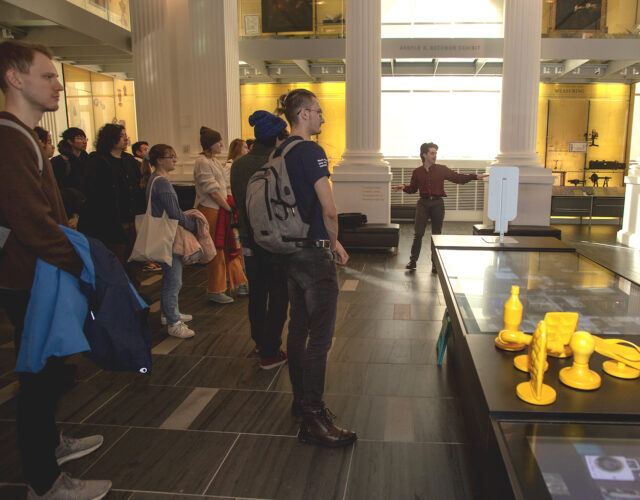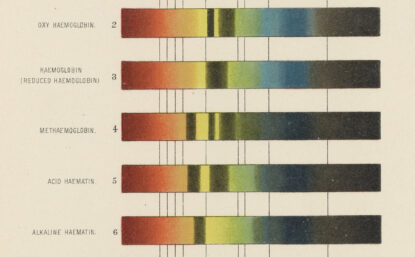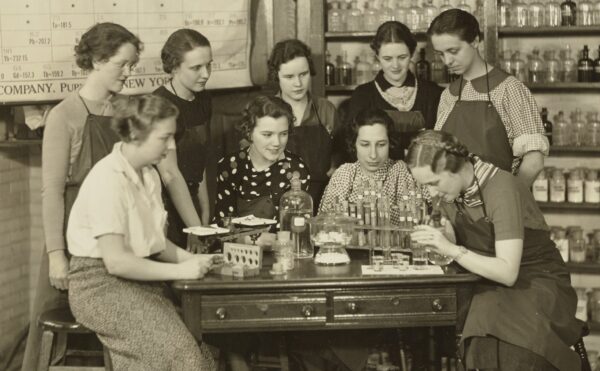CollegeFest 2023

All new and returning Philadelphia-area college students are invited to visit the Science History Institute’s museum during CollegeFest, Campus Philly’s annual city-wide, weekend-long, “Welcome to Philadelphia!” celebration featuring free experiences, fun activities, contests, entertainment, giveaways, and more.
The Institute joins more than 25 of the City of Brotherly Love’s most iconic cultural organizations and attractions offering free admission exclusively to college students. Your official ticket also includes free SEPTA rides right to our front door in Old City.
Students can explore the intersections of environmentalism, education, and fun with our latest outdoor exhibition Playing Dirty, hear the voices and learn the stories of scientists and engineers who immigrated to the United States in the 20th century with our Migrating Science ExhibitLab, and discover the connections between rare earth elements and glass art with Enabling Transparency. And don’t miss our permanent exhibition, which will take you on a journey through more than five centuries of scientific inquiry into the material world.
CollegeFest is organized by Campus Philly. Registration is required.
More events
Stories of Science: Earth Month
Join us in our museum EVERY SATURDAY for a family-friendly program that highlights strange and surprising stories from the history of science!
First Friday: 80s Night
Get ready to travel back in time to the fabulous 1980s! Whether you rocked the Jazzercise leotard or spent hours trying to solve the Rubik’s Cube, we’ve got something for everyone.
Women in Chemistry Tour
Drop in for a tour highlighting the central role of women in shaping chemistry and the material sciences throughout history.



